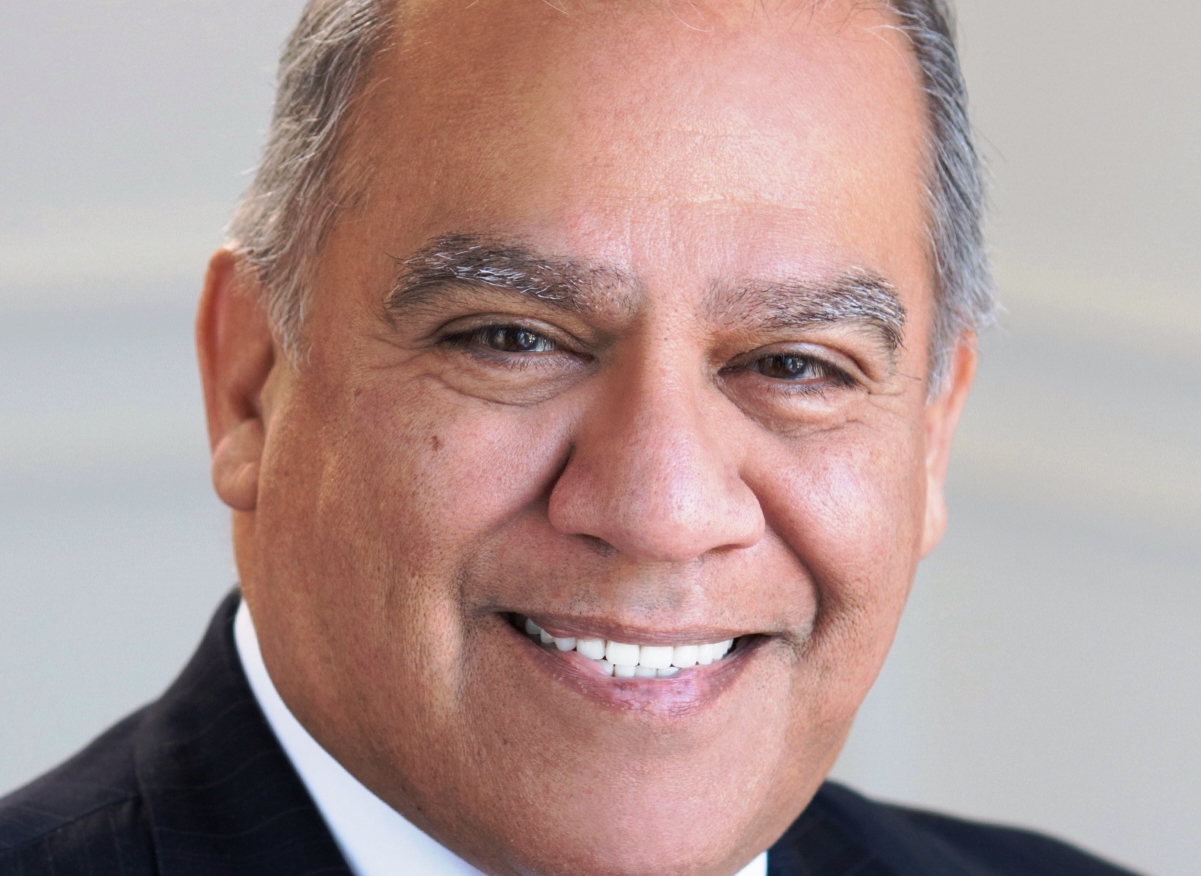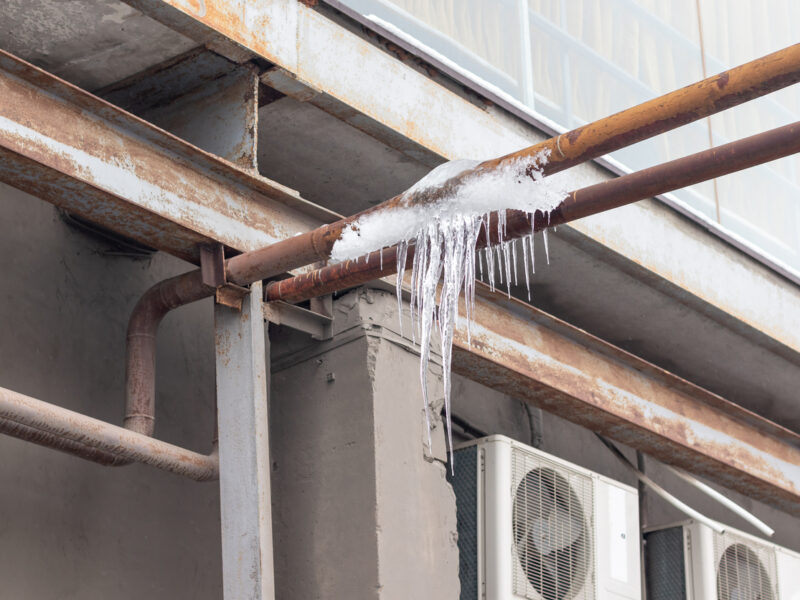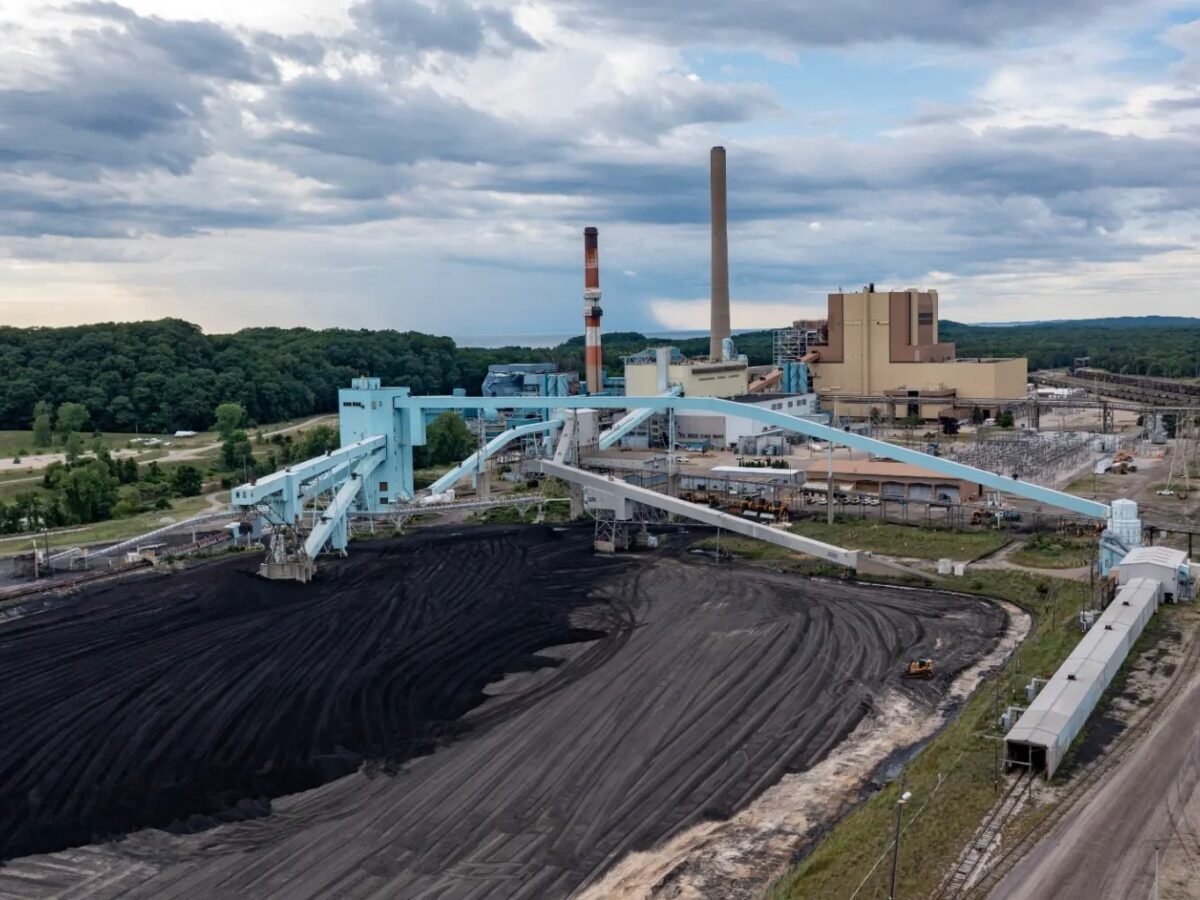Overview:
-"My fundamental issue in this whole campaign is to generate more resources," Rogelio Landin tells Planet Detroit.
-Landin grew up in Delray, which he says is a "garden paradise" compared to 60 years ago.
-He describes the devastating water main break that occurred in Southwest Detroit in February as "the canary in the coal mine" for Detroit's infrastructure.
Rogelio Landin brings over 50 years of private sector and nonprofit leadership to his write-in campaign for Detroit mayor, according to his biography.
Landin filed an amicus brief in the Milliken v. Bradley case, which was a lawsuit filed by the NAACP against then-Michigan Gov. William Milliken regarding de facto segregation in Detroit schools that was decided by the Supreme Court in 1974.
The brief “was in essence to save bilingual education as well as protect the status of Hispanics as a protected minority under the Civil Rights Act,” Landin told Planet Detroit, citing the case as the beginning of his involvement in education as a right.
“It impacted every language group that was protected under bilingual education law, not only in Detroit, Michigan, but in the country,” he said.
Landin spoke with Planet Detroit ahead of the August primary election about environmental and public challenges the city faces, as well as his central campaign proposal of growing Detroit with an annexation strategy.
This interview has been edited for brevity and clarity.
If elected mayor, how would you balance economic development with environmental impact? For example, the new Stellantis plant on Mack Avenue opened under Mayor Duggan quickly created new air pollution issues for east side residents.
The key word is balanced, Landin said: “Obviously, there’s always going to be some give and take.”
Landin is known as an expert in government compliance, he told Planet Detroit.
“If somebody negotiates a plant with this administration, they will be held to everything that’s required in terms of compliance with all federal, state, and local regulations,” he said. “That said, I’m not sure how much more anyone can do and still accomplish the kinds of developments” that are needed.
Landin described his litmus test for himself: “If I can’t look my children in the eye and explain it, I don’t have any business doing it.”
What is your stance on Detroit’s air quality and specifically the issue of cumulative impact, which refers to, for example, a burdened neighborhood like Delray, and looking at the cumulative effect of every polluting entity that’s in the neighborhood on the air quality?
Landin was born and raised in Delray, and remembers “slag trucks running up and down Jefferson from the steel mills” before the existence of the EPA.
“I don’t think there’s another candidate who can share with you the lived experience of coming up when Delray was probably 10 times more polluted than it is now. Thankfully for the EPA, they started cleaning it up,” he said.
Delray is “a garden paradise right now” compared to when Landin was growing up, he said, adding that with remediation, “you have to start somewhere.” In Delray, that process started about 60 years ago, he said, adding that brownfield redevelopment legislation and regulations are necessary.
What role does the city of Detroit play as the EPA rolls back pollution standards under the Trump administration? For example, EES Coke Battery on Zug Island recently applied for a Clean Air Act exemption the Trump administration is offering.
“All that is, is kicking the can down the road and somebody profiteering at the expense of people, not only in the area, but even around the area,” Landin said.
The mayoral candidate said he supports the development of green hydrogen in steel manufacturing.
“You want to revitalize that whole steel strip beyond Zug Island, we can go all the way down the river to McLouth and all the other steel companies down in Wyandotte and … remediate those sites. And if people want, we can get them reproducing steel using hydrogen.”
What’s your position on urban agriculture as a land use in Detroit and, more specifically, would you support an ordinance for standalone composting operations?
Landin is a member of the advisory committee for the city’s next master plan, “and we’re drawing up land use issues for the next 20 years.”
The work is expected to wrap by the end of 2025, and urban agriculture will be incorporated in the master plan, Landin said.
It’s important that soil in urban farms or community gardens is remediated to prevent the growing of food in contaminated soil, he said.
Landin said he’s working with an Ohio company on a biofuels project, adding that switchgrass gives a high yield as a source for the production of biofuels.
“With all this land we’ve got here in Detroit, it would be a good fit where we could grow switchgrass, which does several things,” he said, such as the filtering of groundwater runoff.
Is there a role for the mayor to play in terms of helping prevent utility shutoffs and helping residents afford their DTE Energy and Detroit Water & Sewerage bills?
“My fundamental issue in this whole campaign is to generate more resources,” Landin said. “Anybody can sit here and give you all kinds of pie in the sky, but at the end of the day, it’s how you’re going to pay for it.”
Between the Trump administration and GOP state House in Lansing, “those two avenues for looking for places to find money to subsidize people are pretty much dried up,” he said.
Landin’s solution: annex 28 “distressed” communities around Detroit, forming a city of more than 1 million people. This would put Detroit in a higher revenue-sharing bracket at the state and federal levels, he said: “More is more.
“It’s how Detroit was built in the first place,” Landin said. He names the Charlotte-Mecklenburg region in North Carolina as the “gold standard” for growth via annexation, and said the concept is about achieving efficiencies through economies of scale.
How would you address Detroit’s growing flooding problem? What can the mayor do to help?
The next mayor needs to evaluate the relationship with the Great Lakes Water Authority, Landin said. Referring to the February water main break that devastated a Southwest Detroit neighborhood, “the scary part of that isn’t that it happened or where it happened,” he said.
“The scary part is that it could actually happen all over the city at the same time. The whole system is 100 years old, OK?”
The most vulnerable parts of Detroit’s water system must be identified, prioritized, and replaced before they’re “this problem that’s basically unsolvable in any reasonable amount of time,” the mayoral candidate told Planet Detroit.
“We can’t wait for another Southwest Detroit. That was the canary in the coal mine.”
Did you support the formation of the Great Lakes Water Authority?
“I supported it at the time. I think it’s time to revisit it,” Landin said.
The population cannot support the infrastructure of a water system built for what was once nearly 2 million people, he said.
“The bottom line is … is it equitable? Perhaps not. Is it equally distributed? Perhaps not. Do we still have it at our disposal? Yes, which means that we can still make some changes in order to make it more so.”
MORE PLANET DETROIT REPORTING
What to know about freezing pipes in Metro Detroit
As Metro Detroit faces prolonged cold, plumbers report a rise in frozen and burst pipes, urging homeowners to act. Insulating exposed pipes and letting faucets drip overnight can prevent costly damage.
Can Trump’s coal comeback last? Experts say no
In 2025, regulatory rollbacks and surging power demand helped buoy an industry in trouble.
Data centers could drive Michigan air pollution higher with climate law loophole: Science nonprofit
Data center power demands, emissions loophole for Michigan utilities could add to the state’s air pollution in decades ahead, The Union of Concerned Scientists says.
What is your stance on ICE enforcement in Detroit and the city’s friendliness to immigrants?
“The Detroit Police Department is just that, the Detroit Police Department, and I don’t expect ICE to expect anything more from us than it would otherwise,” Landin said. “They’re (ICE) here to do their job, whether we agree with it or not.”
What is your take on Detroit’s new rental inspection ordinance? This is the one that’s being deployed this year, and it has specific components like visual-only lead inspections that have been critiqued by some lead advocates.
Landin is a newly appointed member of the city’s Tenant Rights Commission, he told Planet Detroit.
“I was very disappointed in council on that lead decision that they made to lighten up,” he said. “That you would take an action that would somehow soften the requirements and enforcement of lead and expose our children to that, to me, is unconscionable.”
If elected mayor, Landin said one of his first actions would be to send a note to City Council to reverse and repeal the ordinance.
“You can’t put teeth and things on one side and then pull the teeth on the other. It doesn’t work,” he said, adding the city is sending mixed messages, particularly to landlords.
What can the mayor do to improve Detroit’s public transit?
Landin names South Florida as a model to follow, where all transit systems rely on one payment card, the Easy Card.
Similar transit integration can be achieved in southeast Michigan, he said.
“I don’t have an ownership issue with that, because regional transportation actually contributes to the annexation idea, where people can see interconnected services being more consistent and reliable in terms of how the systems run.”
Transit is part of Detroit’s overall economic development strategy, Landin said.
“We need to understand … it doesn’t matter what we think about transit. It does, but it doesn’t. It matters what people outside — who are looking to come in — see as the efficiency of our transit system. And that means we have to make a world-class system, if not for ourselves, for everybody else, but we certainly will be the beneficiaries of it once done,” he said.





